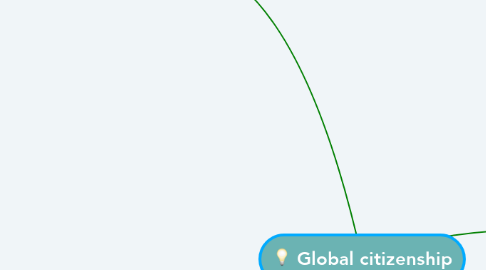Global citizenship
by Omirbek Mukatay

1. How to become a global citizen
1.1. 1) GET INSPIRED Find yourself a world map and collect books on places you would like to visit. These can include both fiction and nonfiction, language, or geographical books. Finding your passion and keeping yourself inspired by the breadth of different countries and cultures will give you the motivation to learn and integrate yourself more into the global community.
1.2. 2) GET EDUCATED Take global education courses at your high school or college, and build your knowledge base for international happenings. Courses involved with leadership, business or community engagement are especially helpful. Volunteer to organise an “International Day” at your school, join whatever international clubs exist on campus, and get creative and involved!
1.3. 3) GET HUNGRY Eat at different traditional restaurants and make strides to learn a language. Get to know the owners of the restaurants. Where are they from? What are their stories? Buy a cookbook and try to learn about a different culture’s cuisine. You can even make it fun and have themed parties where everyone brings a specific dish and try to speak only that language throughout the dinner party.
1.4. 4) READ MORE Read globally-minded magazines and pay attention to international news to get better informed about, and keep up with, current events at places you would potentially like to visit. This increased exposure will help you narrow down your focus, and provide you with a knowledge-base for global trends.
1.5. 5) GO ABROAD Find programs that allow you to study and live abroad, perhaps even with an internship component, for increased mentorship and skills development. If these opportunities include a language-learning option, even better! Interested in international careers? This kind of international experience is critical for your success. It’s important that you carefully consider and reflect upon your experiences, to deepen your understanding of and integration with the experiential material.
1.6. 6) MAKE FRIENDS During your time domestically, you can find ways to establish cross-cultural friendships or relationships on campus, with exchange students, etc. If possible, find an international pen-pal (or an email pal, or WhatsApp pal) and exchange perspectives. This is a good way to prepare for a trip abroad too!
1.7. 7) BECOME A LEADER To develop your abilities, begin to organise or lead international travel groups. Plan your own trips, and coordinate group travel and study options with your peers. You can also get more involved with the international community on a wider scale. Attend international conferences, participate in international internships, and continue to read up on cross-cultural skills in the work environment from trusted sources.
2. What are the characteristics of a global citizen?
2.1. Global citizens are willing to help and cooperate with others. Global citizens have their own ideas and express them, but they are open to changing them if they are proved wrong. Global citizens are curious and want to learn more about the world. Global citizens look after the environment and don't waste things.
2.2. Malala Yousafzai (born 12 July 1997) is a Pakistani activist for female education and the youngest Nobel Prize laureate. She is known for human rights advocacy, especially the education of women and children in her native Swat Valley in Khyber Pakhtunkhwa, northwest Pakistan, where the local Pakistani Taliban had at times banned girls from attending school. Her advocacy has grown into an international movement, and according to former Pakistani Prime Minister Shahid Khaqan Abbasi, she has become "the most prominent citizen" of the country.
3. How does global citizenship affect our world?
3.1. Global citizens have an impact on ending extreme poverty through the actions they take. The effects of small actions are not always obvious, but by working together specific and tangible outcomes are achieved. Global citizens' voices influence world leaders and decision makers, and contribute to shaping our world.
4. Who is a good global citizen?
4.1. A global citizen is someone who is aware of and understands the wider world - and their place in it. They take an active role in their community, and work with others to make our planet more equal, fair and sustainable.
5. Why is global citizenship important?
5.1. It encourages individuals to think deeply and critically about what is equitable and just, and what will minimise harm to our planet. Exploring Global Citizenship themes help learners grow more confident in standing up for their beliefs, and more skilled in evaluating the ethics and impact of their decisions.
6. How do you become a global citizen?
6.1. Why is global citizenship important? It encourages individuals to think deeply and critically about what is equitable and just, and what will minimise harm to our planet. Exploring Global Citizenship themes help learners grow more confident in standing up for their beliefs, and more skilled in evaluating the ethics and impact of their decisions.
7. Who is behind global citizen?
7.1. The Global Citizen Festival is an annual music festival started in 2012 and organized by Global Poverty Project. In 2015, the organization announced that Coldplay lead vocalist Chris Martin would serve as the festival's curator for the next 15 years. It was founded by Ryan Gall and Hugh Evans.


